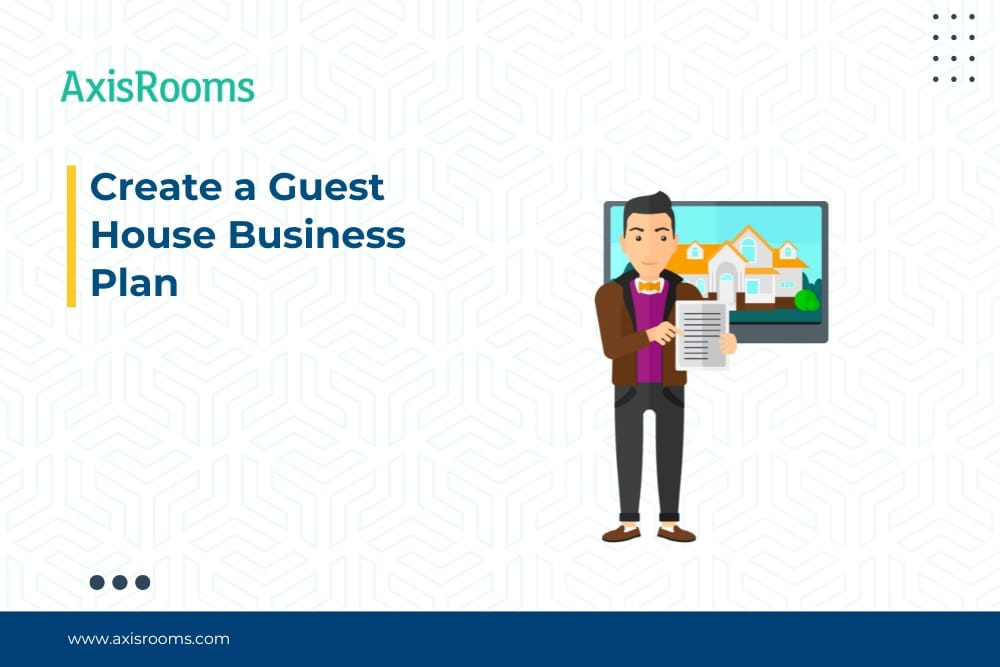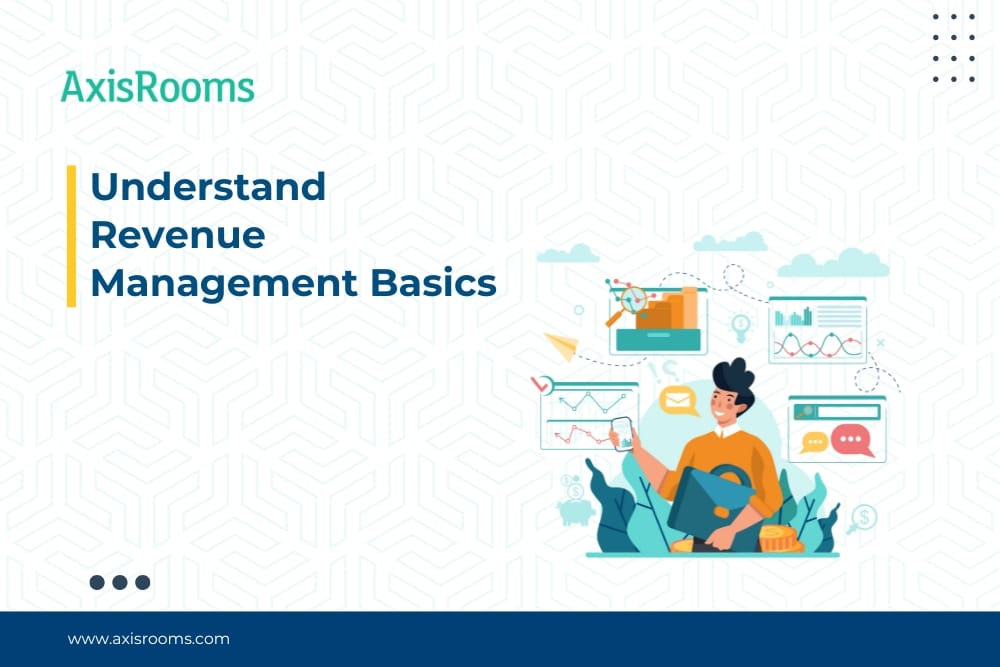Starting a guest house is a great business opportunity, but to make it successful, you need more than just good rooms and friendly service. You need proper planning, the right systems, and smart tools to help you save time, attract guests, and earn more money.
In this easy-to-follow guide, we will show you how to set up your guest house—from planning and using hotel technology, to managing bookings and increasing your revenue. You’ll learn how everything fits together to run your guest house smoothly and profitably.
1. Create a Guest House Business Plan

A business plan is like a roadmap. It helps you understand what you want to achieve and how you will get there. It's also useful if you're talking to investors or banks for funding.
What to include:
- Your Idea: Describe your guest house, location, number of rooms, and what makes it special.
- Market Check: See how many tourists visit your area, who they are, and what they want. Look at your competitors too.
- Guest Types: Think about who your main guests will be—families, business travelers, couples, etc.
- Room Pricing: Set prices based on your costs, competitors, and what your guests are ready to pay.
- Expected Income: Estimate how many rooms you will sell and how much money you will make monthly.
- Marketing Plan: Decide how you will promote your guest house—online, on social media, or through travel sites.
- Operations Plan: List who will work in your team, what systems you will use, and how you will manage daily tasks.
2. Set Up PMS, Channel Manager & Booking Engine
These are basic systems every hotel or guest house should have today.
PMS (Property Management System)
A PMS helps you manage reservations, check-ins, check-outs, payments, room status, and more—all in one place.
Make sure your PMS supports PMS Integrations, so it connects easily with other tools like channel managers or booking engines.
Channel Manager
This tool updates your room prices and availability on all booking websites (OTAs) like Booking.com or Airbnb at the same time. This helps avoid double bookings.
Booking Engine
This tool is added to your own website. It allows guests to book rooms directly from your site without paying commissions to third parties.
Tip: Use booking engines that support safe payment gateways and allow guests to pay online during booking.
3. Understand Revenue Management Basics

If you want to make more money from each room, you need to manage your pricing well. This is called revenue management.
- ADR (Average Daily Rate) = Total room income ÷ Number of rooms sold
- Occupancy Rate = Rooms sold ÷ Rooms available
- RevPAR (Revenue per Available Room) = ADR × Occupancy Rate
Sample Revenue Table
Use these numbers every week or month to check how your business is doing and where you can improve.
Simple tips:
- Charge more during festivals or weekends when demand is high
- Offer discounts on weekdays or during low seasons
- Sell packages or add-on services to increase revenue per booking
4. Get More Direct Bookings
When guests book directly through your website, you save money on commissions and have better control over your relationship with them.
How to increase direct bookings:
- Make your website simple, fast, and mobile-friendly
- Add a clear “Book Now” button
- Give small discounts or free breakfast for direct bookings
- Send email offers to repeat guests
- Add reviews and guest photos to your site to build trust
A good hotel revenue strategy includes both online travel agents (OTAs) and direct bookings, but always try to grow your direct channel.
5. Increase Your Earnings with Extra Services

Don't just sell rooms—offer extras that guests will love and are happy to pay for.
What you can offer:
- Room upgrades
- Airport pickup or drop-off
- Guided tours or local experiences
- Early check-in / Late check-out
- In-room surprises like snacks, wine, or flowers
Show these extras during the booking process or when guests arrive. Many will happily pay a bit more for comfort and convenience.
6. Market Your Guest House
Marketing means making sure guests can find you, remember you, and choose to stay with you.
Simple Hotel Marketing Strategy-
- Register your business on Google and other travel websites
- Post good photos of your rooms and property
- Share guest reviews and happy stories on social media
- Write short blogs or local guides on your website to improve search ranking
- Send emails to past guests with special offers or updates
Even small guest houses can build a strong brand with consistent and honest marketing.
7. Use the Right Hotel Technology
Technology can save time, avoid mistakes, and make your life easier.
Must-have tools:
- PMS to manage bookings and guests
- Channel Manager to update all booking sites at once
- Booking Engine for direct reservations
- CRM or Email System for guest communication
- Revenue Management Tool for smart pricing
Make sure all tools work together through PMS Integrations to avoid confusion or data problems. Choose tools made for small hotels so they are easy to learn and use.
8. Track Results and Keep Improving

Once everything is running, keep checking your performance. This helps you grow faster and avoid problems.
What to check:
- Occupancy rate and revenue
- How many bookings come directly vs. from OTAs
- Guest reviews and ratings
- Website traffic and conversion rate
- Which extras are selling well
Use this data to make small changes. Update your prices, improve your services, or try new marketing ideas. Over time, you’ll see big results.
A Quick Look at AxisRooms
It also works well with other tools like your PMS and booking engine. This means less manual work, fewer mistakes, and more time to focus on your guests.
Why hoteliers like it:
- Easy to use
- Reduces double bookings
- Saves time
- Helps increase revenue by selling rooms on the right channels
AxisRooms is built for small and medium properties—perfect for guest houses that want to grow smartly.
Final Thoughts
Starting a guest house is not just about rooms and beds. It's about smart planning, using the right systems, and improving over time.
Here’s a quick action plan:
- Write your business plan
- Set up your PMS, booking engine, and channel manager
- Start tracking your pricing and occupancy
- Promote your guest house online
- Keep guests happy and encourage repeat bookings
- Use data to improve and grow
By following this simple roadmap, you’ll be on your way to running a professional, efficient, and profitable guest house.


